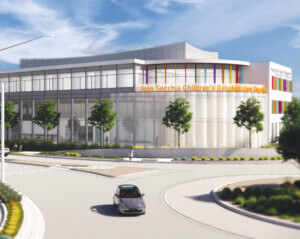The race is on to develop connected and automated vehicles (CAV) that are viable and affordable. The road to this goal is not a simple one, though. While Silicon Valley is working on the software side of the challenge, the U.S. government is looking back to the place where it all began: Michigan. Specifically, Willow Run in Ypsilanti Township.
Willow Run was a B-52 manufacturing plant during World War II. Today, the site is in the middle of a transition that will make it the epicenter of automated-vehicle research. Willow Run is now home to the American Center for Mobility (ACM), and it has been designated as the first national CAV proving grounds by the Department of Transportation.
At over 500 acres, the center includes a variety of environments designed to simulate real-world situations. These include a 2.5-mile highway loop, a 700-foot-long curved tunnel, two double overpasses, and multiple intersections and roundabouts. Matched with Michigan’s varied and sometimes extreme weather, the center provides everything needed to put new autonomous testing technologies through their paces.
The first task of the facility will be to help establish voluntary standards for CAVs, infrastructure, and autonomous technologies. Along with the Institute of Transportation Engineers (ITE) and SAE International, the center will work to identify the most immediately needed guidelines for safe automated transportation. The center is also working with the University of Michigan’s Mcity, a smaller research facility with its own proving ground. Mcity’s position within the greater university allows researchers access to the school’s engineers, public policy experts, and law, business, social sciences, and urban planning faculty.
As a public-private partnership, the center is also working with companies like Toyota and AT&T. Toyota, which already does automated research at Mcity, recently invested $5 million into the center. AT&T is providing a dedicated LTE cellular network needed for the communication side of the CAV equation.
“As we move forward with the development of autonomous cars, we must remember that not all test miles are created equal,” said Gill Pratt, CEO of Toyota Research Institute, at the announcement of the Toyota-ACM collaboration. “The road to creating a car as safe, or safer, than a human driver will require billions of test miles including simulation, real-world driving on public roads, and closed-course testing where we can expose our systems to extreme circumstances and conditions. The new ACM closed-course facility is a significant step forward in this journey and will accelerate our ability to help prevent crashes and save lives.”
According to the World Economic Forum, 10 percent of vehicles in the U.S. will be driverless by 2026. Before that can happen, new hardware and software will have to be developed to overcome issues of trust, cost, efficiency, and safety. The U.S. government is counting on Michigan’s automotive brain trust to solve these issues and move the country back into the lead position in the automotive industry.










